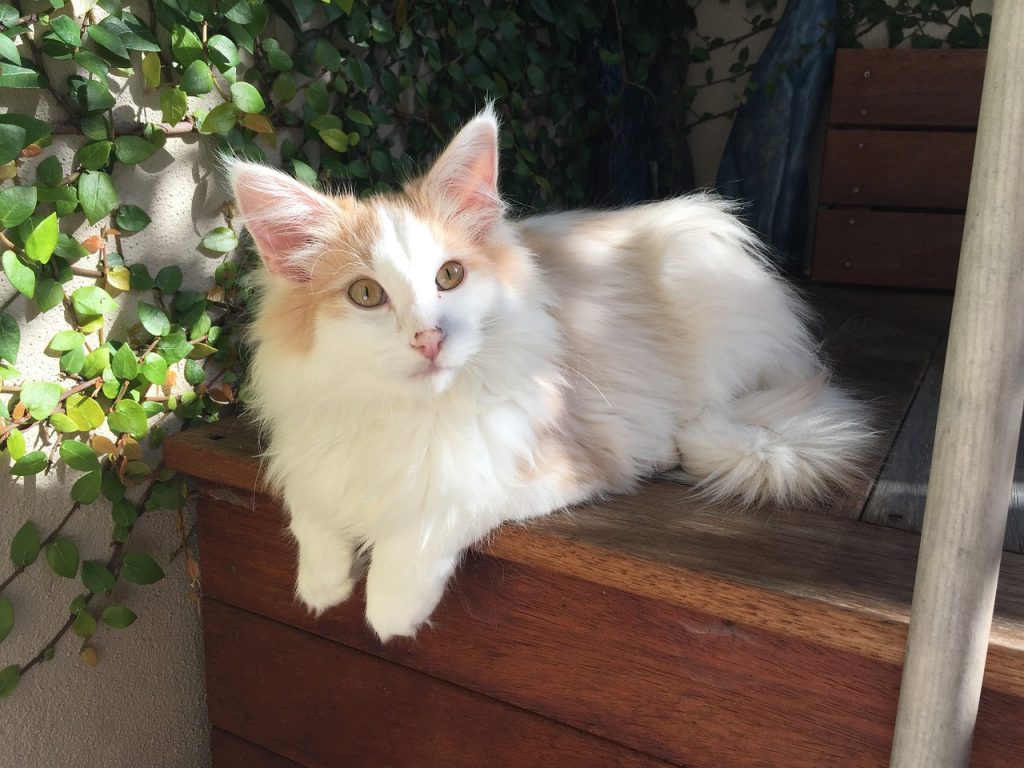Introduction: Understanding the Winter Woes of Kittens
Norwegian Forest Cat kittens, known for their thick fur and playful spirit, can still fall prey to the common cold. This condition, primarily an inflammation of the upper respiratory mucosa, presents itself as a fever, coughing, sneezing, and nasal discharge. Kittens, with their delicate immune systems, are particularly susceptible. This article will explore the causes of colds in kittens, appropriate treatments, and essential care tips for owners to ensure their furry friends remain healthy and comfortable.
The Roots of Illness: Why Kittens Get Colds
Kittens are especially vulnerable to colds due to a combination of factors. Their immune systems are still developing, and they often lack the robust physical condition of adult cats. Sudden drops in environmental temperature, particularly during transitional seasons like early spring and late autumn, can significantly weaken their respiratory defenses. Kittens can also become ill if they are exposed to cold drafts after exerting themselves, compromising their ability to regulate body temperature effectively.
Immediate Remedies: What to Administer When Your Kitten Has a Cold
If you notice your Norwegian Forest Cat kitten exhibiting symptoms of a cold, such as coughing, sneezing, or decreased appetite, it is vital to act promptly.
Recommended Medications
For initial treatment, a commonly recommended medication is Amoxicillin, specifically formulated for children. Administering half a packet twice a day, diluted with a small amount of water, can help reduce symptoms within roughly two days. If after this period the kitten’s condition shows no improvement, a visit to the veterinarian is crucial for further evaluation.
Home Care and Environment
In addition to medication, it is essential to pay attention to your kitten’s living conditions. Even as spring approaches, temperatures can be erratic. Adequate warmth should be provided to prevent further complications:
- Draft Protection: Keep your kitten’s living area free from cold drafts.
- Nighttime Safety: Check that your kitten is indoors during colder nights, ensuring they do not get left outside.
- Cozy Quarters: Make sure their sleeping area is dry, warm, and comfortable, ideally placed in a sheltered location of your home.
Preventive Steps: Charting the Path to Recovery
While ensuring immediate care for kittens experiencing colds, there are also preventive measures pet owners should embrace.

1. Nutritious Diet
Kittens may lose their appetite when sick, but nutrition remains vital. Consider providing them with easy-to-swallow foods, such as small amounts of rice porridge or chicken liver porridge, to boost their energy levels. Supplementing their diet with kitten-formulated milk or nutritionally rich pastes can also be beneficial in promoting recovery.
2. Maintaining Warmth
Kittens are sensitive to cold, especially those with shorter fur or newly weaned. Ensure your living space is warm and comfortable, providing blankets in their bed and avoiding cold surfaces or draughty areas.
3. Temperature Monitoring
Keep an eye on your kitten’s body temperature. If they show signs of fever, it’s advisable to have a thermometer handy. Taking their temperature while they are resting tends to yield the most accurate results. If they are unwell, consult your veterinarian about appropriate fever-reducing medications.
When Professional Help Is Needed
In cases where your kitten exhibits severe symptoms—such as persistent high fever or dehydration—it is imperative to seek veterinary care. Symptoms like diarrhea or vomiting, in conjunction with respiratory issues, may indicate a more serious health concern requiring professional intervention.
Conclusion: Nurturing Your Kitten Back to Health
As a loving owner of a Norwegian Forest Cat kitten, understanding the care and treatment options available during their bouts with the common cold can make all the difference. By providing appropriate medications, maintaining a nurturing environment, and ensuring proper nutrition, you can help your furry companion recover swiftly and return to its playful, energetic state.
For further advice or if you have any more questions about your pet’s health, do not hesitate to consult a qualified veterinarian.























































